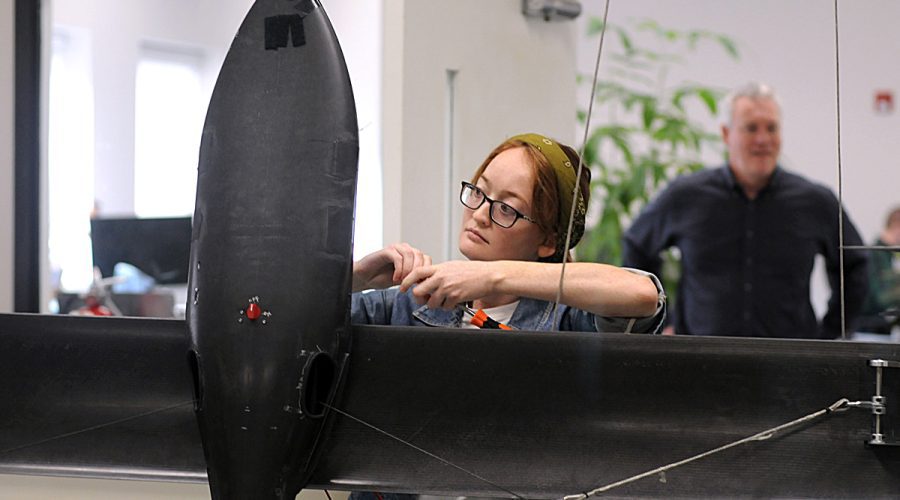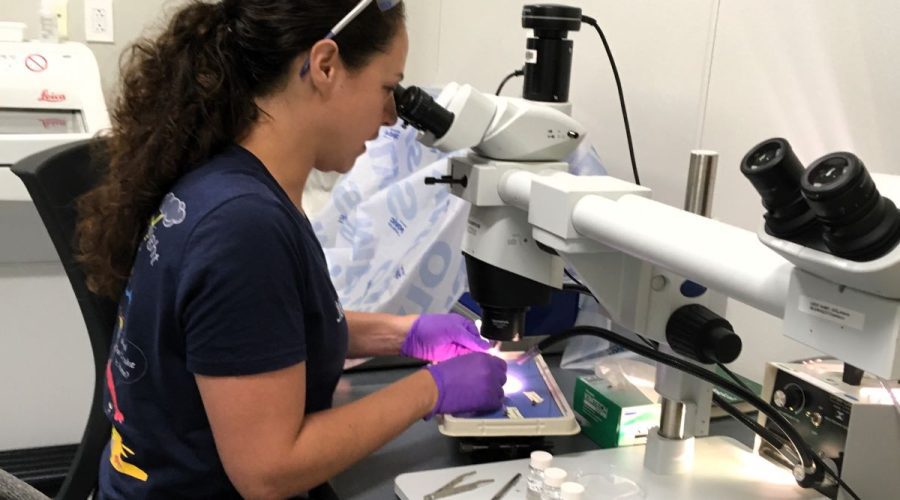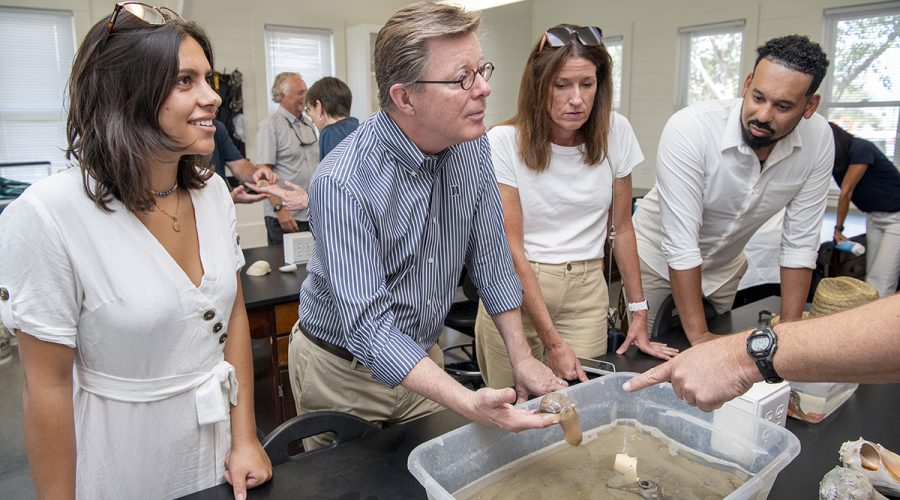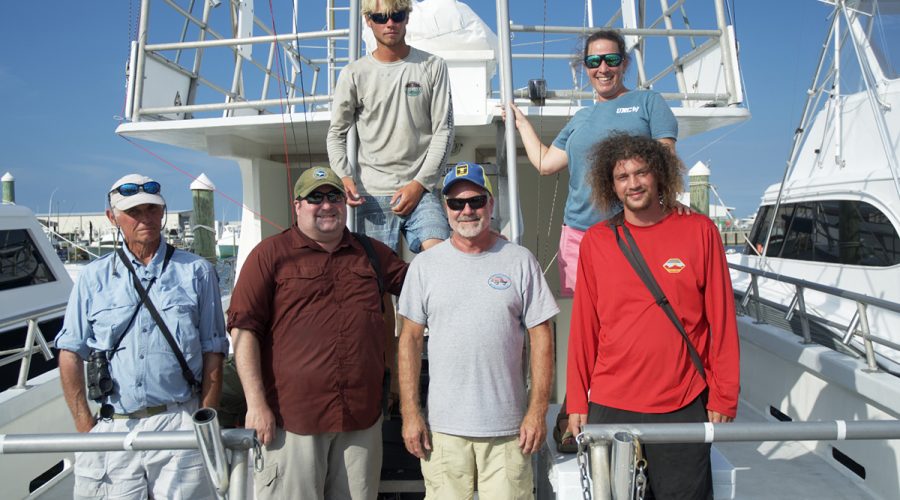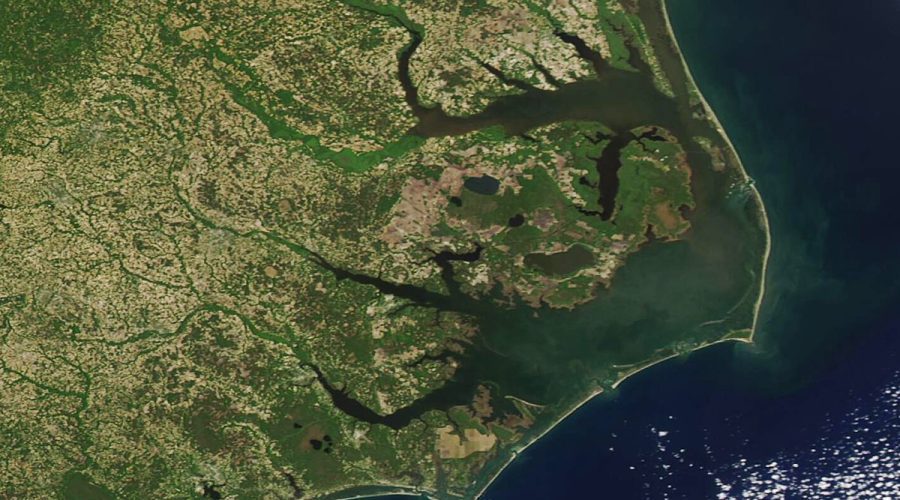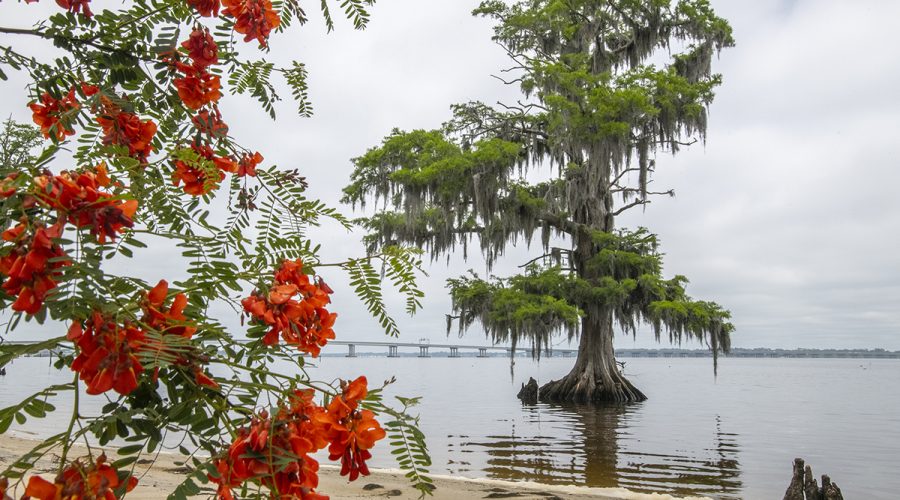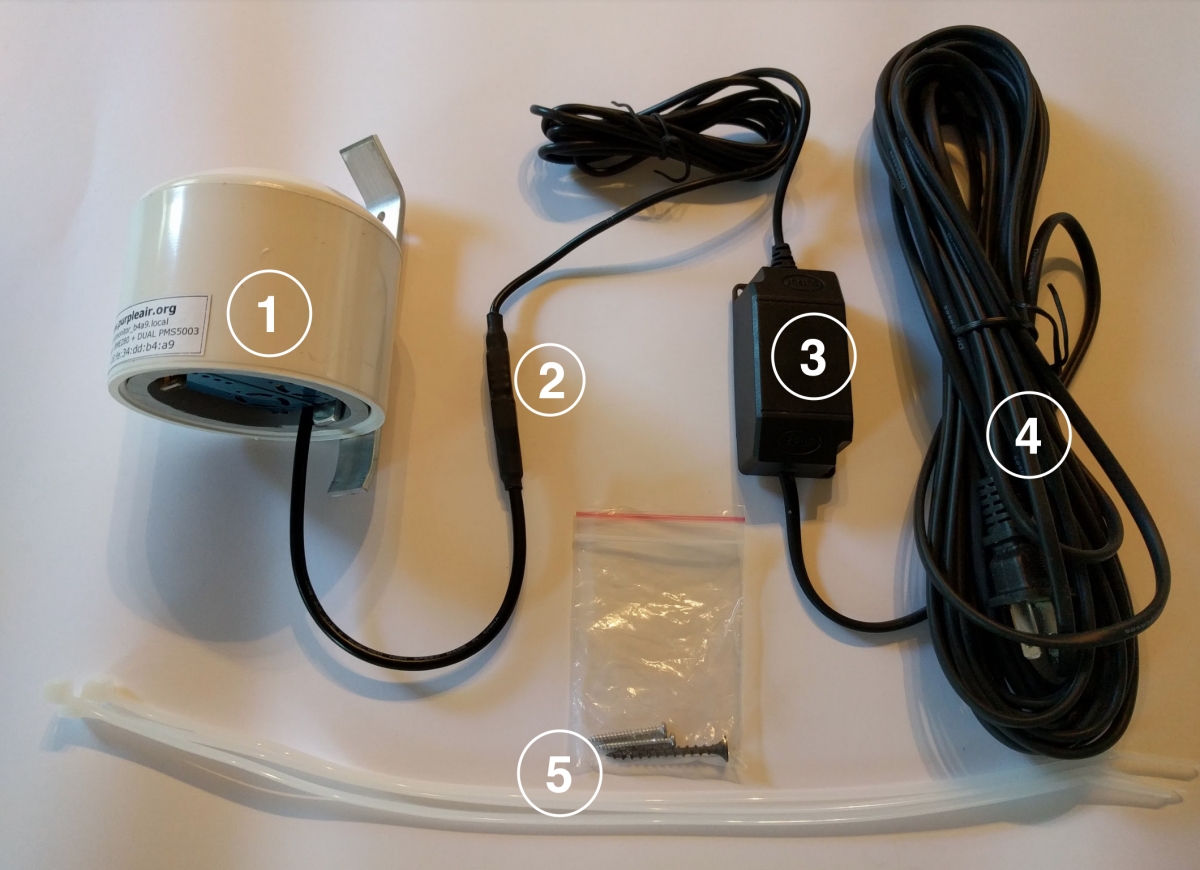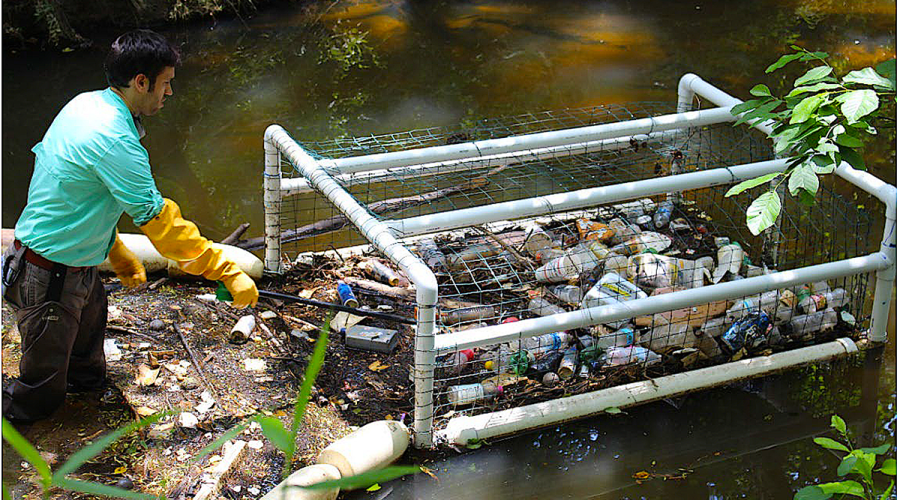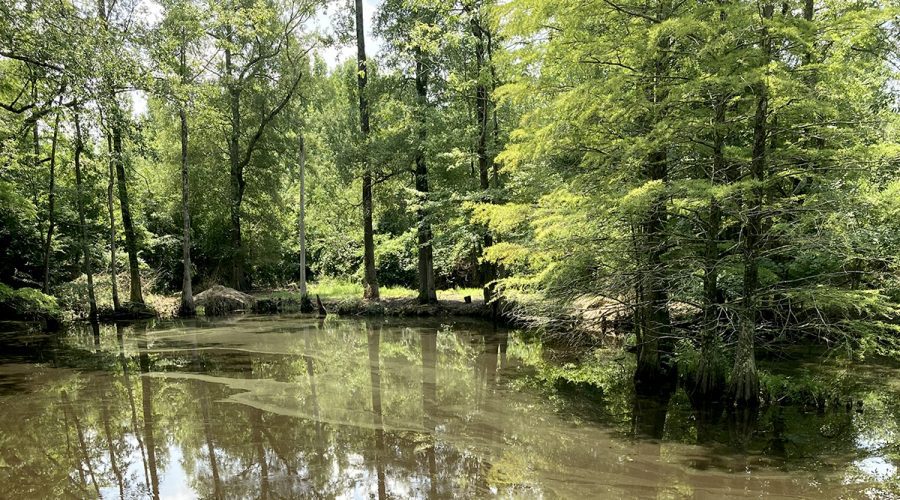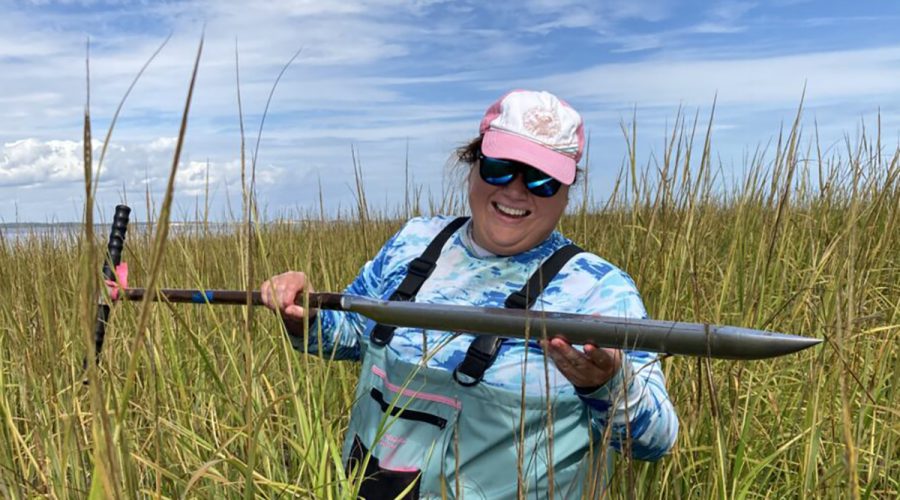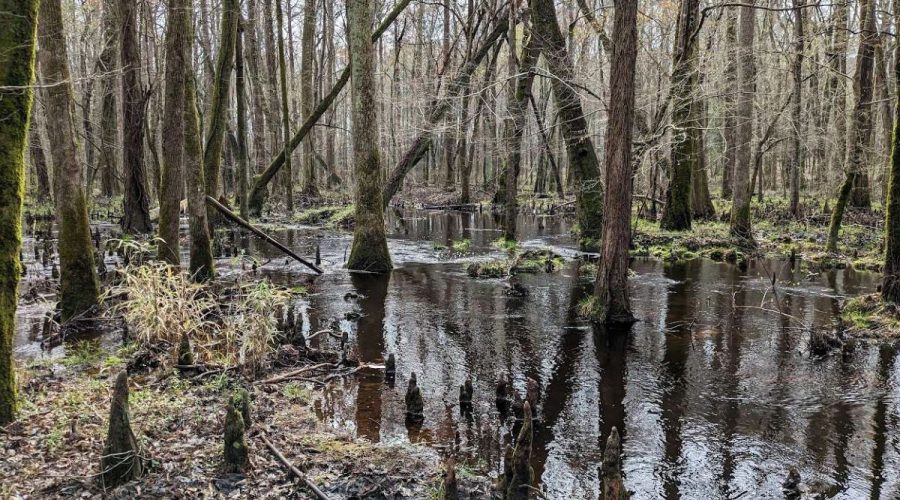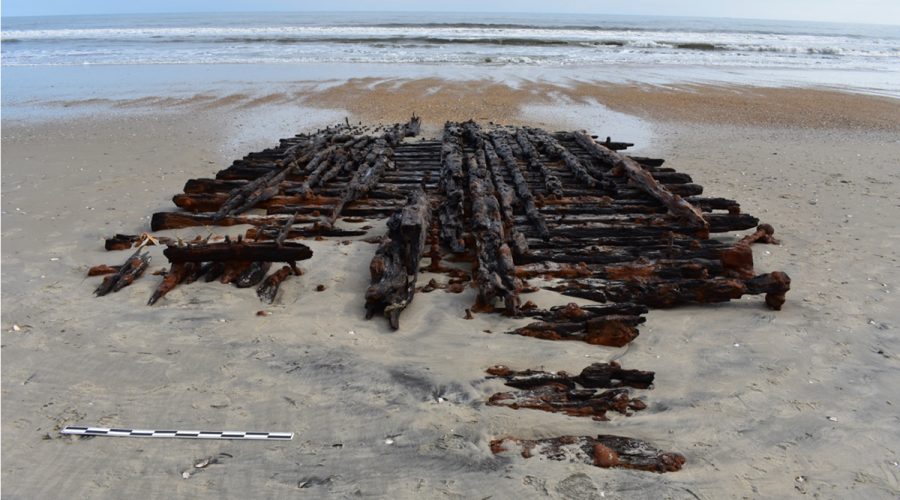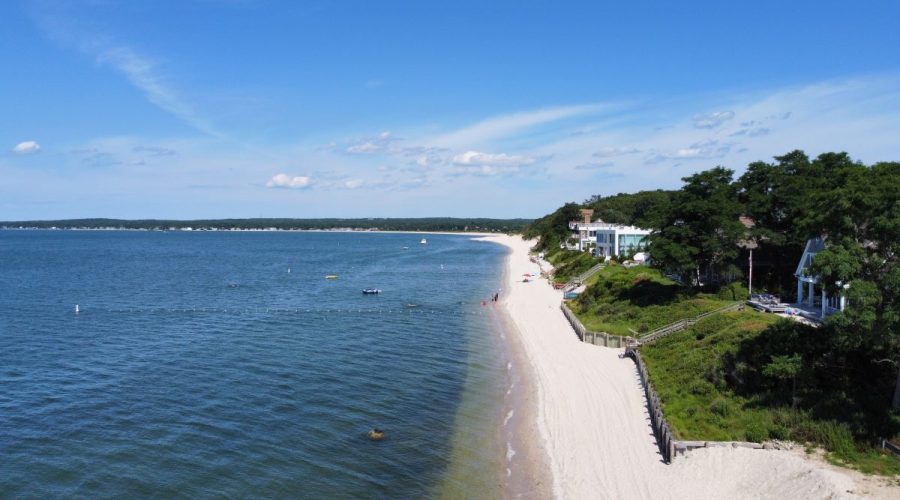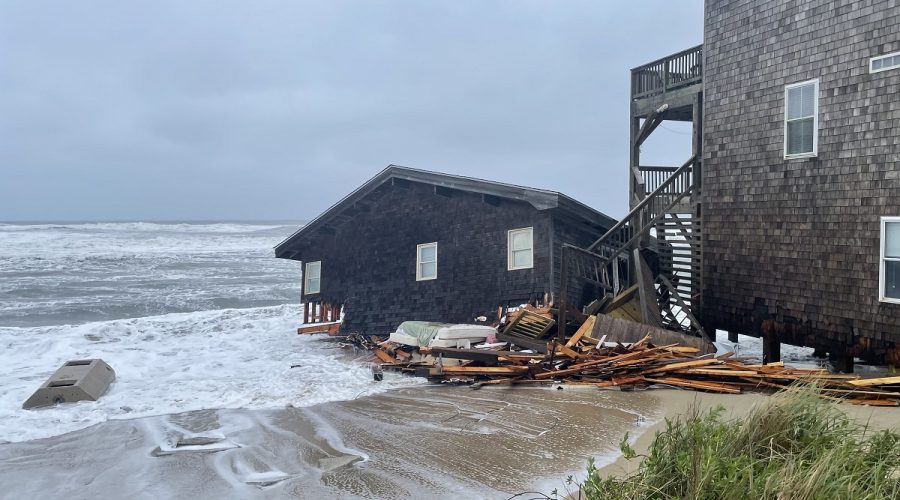A study from Rowan University in New Jersey has drawn a connection between the number of rapidly strengthening tropical Atlantic hurricanes in recent years and documented increases in ocean temperatures.
science
Navy lab funds Durham firm’s airborne power generator
Windlift has a five-year, $30 million contract with the Naval Research Laboratory to develop its autonomous tethered Navy and Marine Corps operations.
Researchers find how hogfish ‘see’ themselves change color
University of North Carolina Wilmington scientists have discovered photoreceptors that allow hogfish to monitor their own shifting hues.
Top Duke University officials tour marine lab
Undergraduate student Lara Breithaupt, left, stands alongside Duke University President Dr. Vincent Price as he holds a moon snail Wednesday during a tour of Duke University Marine Lab on Pivers Island in Beaufort, with Maggie Epps, secretary to the board of trustees and chief of staff to the president, and Frank Tramble, vice president for communications, marketing and public relations with the university. Also visiting were Provost Alec Gallimore and Executive Vice President Daniel Ennis. Photo: Dylan Ray
Petrels ‘little superheroes’ to researcher Kate Sutherland
UNCW researcher and Hatteras Island resident Kate Sutherland studies the chemical isotopes of the feathers from black-capped petrels, a difficult-to-study, endangered pelagic birds species.
Study of estuaries finds lower acidification than in oceans
New research finds that nutrient pollution in the Neuse River Estuary-Pamlico Sound and Chesapeake Bay could affect how carbon dioxide is dissolved in inland coastal waters.
Neuse monitoring shows high salinity from dry weather
Conditions checked through the Neuse River Estuary Modeling and Monitoring, or ModMon, Project show low river flow and saltier-than-normal water.
Chowan group to host program on air quality research
The event is set for 5:15 p.m. Monday at the Shepard-Pruden Memorial Library in Edenton.
Study is first to sample NC rivers, streams for microplastics
North Carolina researchers have estimated the amount of plastic pollution the size of grains of sand that are entering the Pamlico Sound from the Neuse River Basin. It’s a lot.
Ongoing study may show overlooked algal bloom causes
A year into a 30-month public science study, preliminary data appears to show that higher than expected nutrient loads in minor tributaries may contribute to increasingly regular and persistent blue-green algal blooms in northeastern North Carolina rivers.
Mariko Polk celebrates doctorate, new career with Sea Grant
The coastal processes specialist with North Carolina Sea Grant recently completed her studies and stepped into the job long held by Spencer Rogers, who retired last year.
Pilot program relies on volunteers to collect wetlands data
A volunteer-dependent program to monitor wetlands that is going into its second year may be the answer to gaps in wetland data across the state.
Microfossils major part of museum’s public science project
Coordinators of the N.C. Museum of Natural Sciences’ Cretaceous Creatures public science project aim to reach eighth grade classrooms in all 100 counties this coming school year.
Analysis finds wreck on Currituck Beach may be Metropolis
East Carolina University researcher Matthew Pawelski used computer modeling and imaging to make precise comparisons of wreckage and known details of a lost former Civil War naval vessel refitted commercial use.
Coastal Enhanced Weathering: A promising climate solution
UNCW professor Larry Cahoon writes that a nature-based climate restoration solution that his lab is collaborating on may eventually be able to capture a billion tons or more of carbon dioxide each year while reducing ocean acidity and helping to protect coastlines.
Buying out threatened oceanfront homes is not a crazy idea
Dr. Rob Young, director of the Western Carolina University/Duke University Program for the Study of Developed Shorelines, compares the costs of a possible buyout of 80 highly exposed properties in Rodanthe to the costs of beach nourishment, which could be triple that amount over 15 years.


